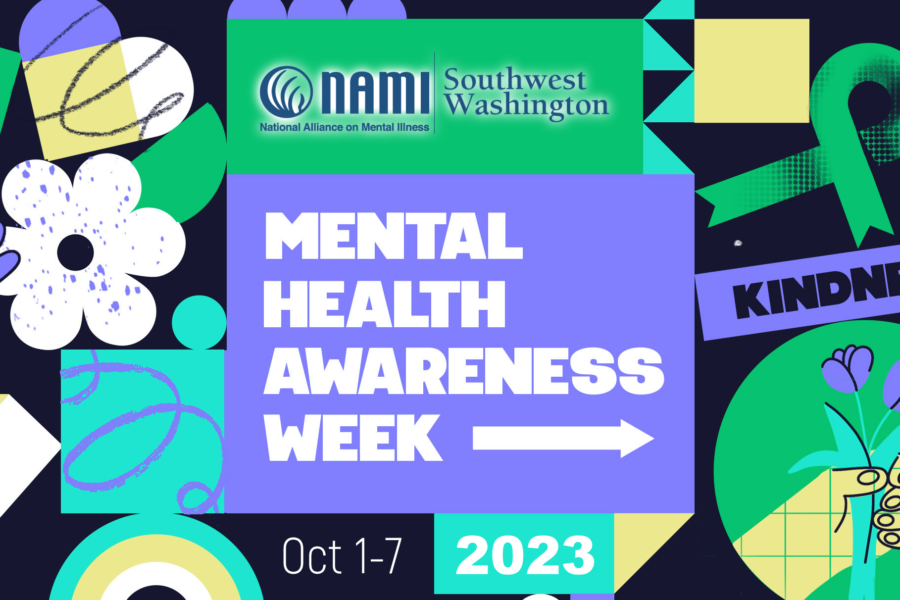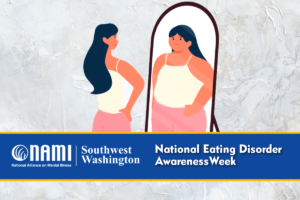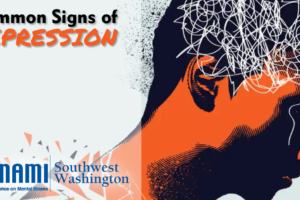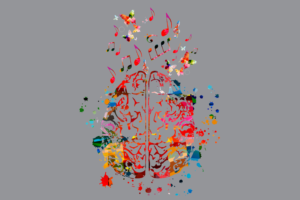By NAMI Southwest Washington
Each year during the first full week of October, the world marks Mental Health Awareness Week—a period of reflection, education, and action to bring mental health to the forefront of global conversations. Originally established by the World Federation for Mental Health in 1992, the goal of this week is multifaceted: to raise awareness about mental health issues, to promote understanding and empathy for those living with mental illnesses, and to advocate for policies and support structures that make mental well-being a priority. Over the past three decades, the dedication and efforts of countless individuals, organizations, and governments during this week have slowly but surely chipped away at the barriers of misunderstanding and prejudice surrounding mental health.
Small Actions, Big Impact: How Everyone Can Make a Difference
In a world brimming with information and connectivity, it’s easy to forget the power that lies in each of our hands. Here are some accessible ways that just about anyone can contribute to the cause and help end the stigma around mental health:
Educate Yourself and Others
Hearing or reading about personal experiences can offer invaluable insights. Podcasts, documentaries, and personal blogs are excellent platforms for this. If you’re comfortable, sharing your own experiences or connections to mental health can help others understand and relate. You can also use your platforms to share articles, infographics, videos, and quotes related to mental health. There’s plenty of information around our website that could be life-changing to someone you know!
Be an Active Listener
Give your full attention. Put away your phone, close any irrelevant tabs or apps, and ensure that you are fully present in the moment. Maintain eye contact so that the speaker you are engaged and interested in what they are saying. Be mindful of your body language. Face the speaker and align your body with the person speaking, which shows you’re attentive. Nod occasionally to indicate you’re following along and understanding, and maintain a relaxed posture to avoid crossing arms or appearing defensive. Instead, try to be open and receptive. Avoid interrupting, wait for pauses. Before asking questions or making comments, ensure the speaker has finished their thought. Often, people just want to be heard rather than seeking solutions. Unless advice is explicitly requested, it’s best to refrain from offering it.
Stay neutral and non-Judgmental. Reserve Judgement even if you disagree or don’t understand the speaker’s perspective, approach the conversation with empathy and openness. Avoid saying things like, “I’ve been through worse,” or “My friend had the same issue, and they…”. Each person’s experience is unique. Offer Support with simple statements like, “I’m here for you,” or “Thank you for sharing with me,” can be immensely comforting. Ask how you can help instead of assuming what they need, directly ask, “How can I support you?” or “What do you need from me?”
Be an Advocate on Social Media
Remember to be respectful and sensitive in online conversations. Use relevant hashtags, such as #MentalHealthAwarenessWeek or #EndTheStigma, during specific events to amplify your message. Share or create infographics that break down complex topics into digestible formats. Ensure that the stories or information you share don’t perpetuate fear but rather understanding and empathy.
Additionally, you can share contacts of helplines or resources where individuals can seek professional assistance. Remember, the tone and approach you adopt play a significant role. Ensuring sensitivity, accuracy, and respect will make your efforts more impactful in eliminating the stigma surrounding mental illness.
Mental Health Awareness Week is a potent reminder of our collective responsibility to prioritize mental well-being. Even as individual drops, together we form an ocean—a tide of change that can redefine societal views on mental health. Whether you’re a seasoned advocate or someone who’s just starting, remember that your voice and actions have the power to create waves. Let’s make mental health everyone’s business.




